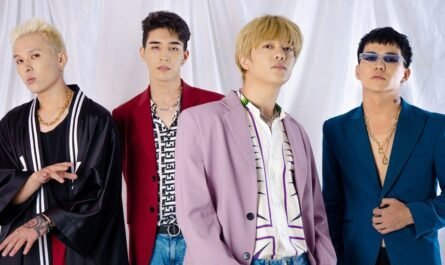The biggest concern of Yanbian Korean Autonomous Prefecture in Jilin Province, China, which is celebrating its 70th anniversary, is ‘how to preserve national identity.’ With the outflow of young people, the cavitation phenomenon is getting worse, and the atmosphere in which the central government prioritizes integration with the Han people over the autonomy of individual ethnic groups is getting stronger. Therefore, I visited Yanbian Province on the anniversary of the 9·3 system (the anniversary of the establishment of the autonomous prefecture) and looked at the ‘light and shadow’ of the Korean-Chinese society.
Familiar signs such as ‘Garosu-gil’ coffee shop
When we arrived at Yanji Airport after a two-hour flight from Beijing, the ‘Yanbian dialect’ started pouring in. All notices in the airport were written in both Chinese and Korean, and the staff helped passengers move in Korean. It was when I realized that I had arrived in Yanji, the ‘Seoul of Koreans.’
Yanji was different from other cities in China. Bicycle paths paved with red urethane and BRT buses called ‘subway on the road’ were similar to those in Korea. When I entered the convenience store, singer Sunmi’s ‘Fever is rising’ came out, and trendy clothing in Korea was airlifted in real-time, so women in their twenties were not much different from those in Seoul.
In front of Yanbian University, a ‘hot place’ in Yanji, familiar names such as ‘Cheongdam-dong Garosu-gil’ (coffee shop) and ‘Burning Sun’ (indoor food stall) were lined up. Although Korea’s influence has decreased compared to the past, Yanji still resembles us. “Because there is no language barrier, good Korean institutions and policies come to Yanji first,” said Kim Mo (52), a taxi driver,” he said.
1 million people abroad since 1990
Yanbianju was established in 1952 by combining Yanji, Tumen, and Longjing, where the Korean-Chinese lived together since the 19th century. It was decided to expand trade and investment with Korea and remittances from Korean-Chinese residing in Korea to have been able to struggle even without any special manufacturing facilities.
A 70-year-old man, whom he met in Rongjing, where poet Yun Dong-Ju was born, said, “I bought an apartment because my wife went to Korea and worked, so I was able to raise my daughter as a doctor.” It will be like a house,” he explained.
However, the deepening dependence of the Korean-Chinese on Korea also produced side effects such as the disintegration of the community. Since the 1990s, as more than 1 million people have moved abroad, the household in which one the married couples lives in Korea has become the new normal, a new everyday life. Divorce due to strife has increased rapidly, and children who are not cared for by their parents have become delinquent adolescents.
Beijing’s “check-in” has also begun in earnest. For example, the Yanbian University of Science and Technology (Yanbian University of Science and Technology), China’s first foreign joint venture university and regarded as a “symbol of Korea-China cooperation,” was closed last year.
Yanbian University of Science and Technology, established in 1991 by President Jin-Kyung Kim, an American businessman, borrowed a site from the Jilin Provincial Government for 30 years, served as a driving force in nurturing the Korean-Chinese technical workforce with the support of Korean companies and overseas Koreans.
However, the Chinese government declared that the contract could not be renewed despite the school’s outstanding social contribution and banned the selection of new students from 2018. Nevertheless, a Korean-Chinese resident I met near the school said, “I can feel the flow of things that can serve as the center of unity of minorities.”
“The need for education to preserve traditional values”
Since its establishment in 1952, Yanbianju has been using Hangeul as a rule, but when writing Hangeul and Chinese characters together, Hangeul has to be written first. Until the early 2000s, there were more than 1,000 Korean-Chinese elementary, middle, and high schools in China, but only 200 remained.
The phenomenon of “fairy tales” in which children are married to Han Chinese and their second generation is registered as Han Chinese is also increasing. Hwang Yu-bok, a Beijing Central National University professor, said, “Education on national language and culture is necessary to preserve traditional values that are directly linked to the survival of the national community.”











